Is it safe to visit Honduras? Many people wonder about this before choosing to visit Honduras. It’s not a simple answer. Traveling in Honduras can be affected by numerous factors and variables, which may differ based on the location, time, situation, and individual.
Honduras is a country known for its abundant cultural and natural treasures. A place to explore the ancient Mayan ruins of Copán, the beautiful Caribbean islands of Roatán and Utila, and many other incredible attractions but the country has gained a certain bad reputation.
It has faced challenges such as political and social unrest, high levels of violence and crime, widespread poverty and corruption, as well as natural disasters and environmental damage. These problems have impacted both the residents and the tourists who visit to experience and appreciate this lovely area.
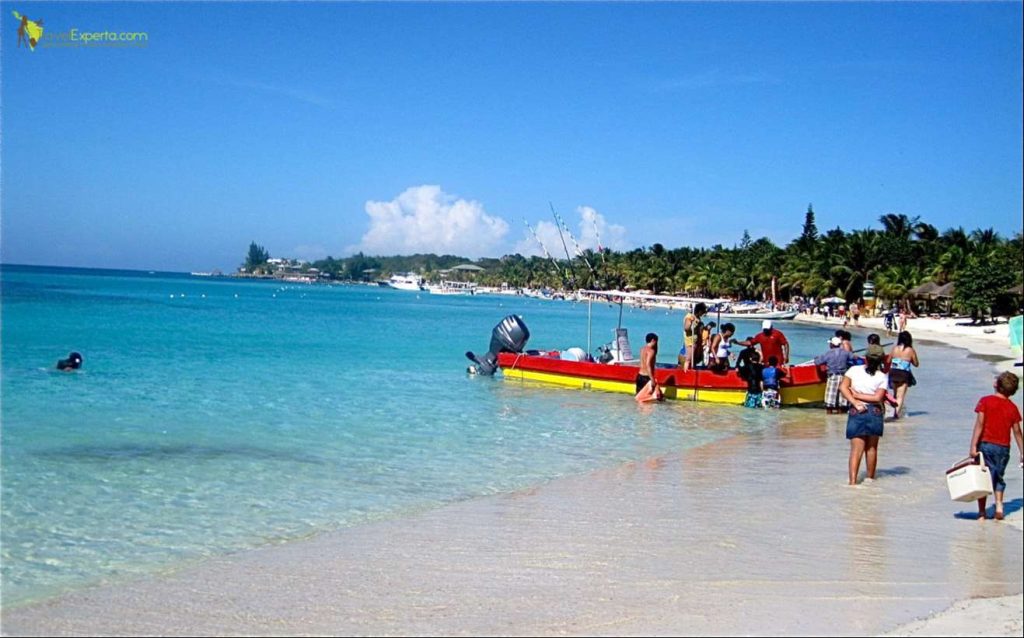
Is Honduras Safe?
Yes, Honduras is safe to visit if you stick to the main attractions and follow common sense, like avoiding walking around showing your valuables or with your phone in hand and walking late at night.
Every country in Central America faces its own set of challenges, and Honduras is no exception. Although things happen, they don’t reflect the whole country.
By staying informed, practicing common-sense precautions, and respecting local customs, you can fully appreciate the beauty and warmth that Honduras has to offer.
It can be summarized in these:
Do:
- Do enjoy and explore the beauty and the diversity of Honduras and its attractions.
- Do visit and support the local communities and the businesses.
- Do try and taste the local cuisine and the specialties.
- Do learn and appreciate the local history and culture.
- Do have fun and make memories during your trip to Honduras.
Don’t:
- Don’t travel alone or at night, especially in areas known to be dangerous.
- Don’t use or rely on the public transportation systems.
- Don’t drink or use tap water or ice, unless they are boiled or purified.
- Don’t eat or buy street food or raw food, unless they are cooked or peeled.
- Don’t touch or approach any animals, plants, or soil, unless they are safe and harmless.
Planning a Trip to Honduras?
Check Out These Helpful Services:
Find the best flight deals
This is the site I recommend, you can check all the different prices.
Best accommodation prices
I highly recommend this one, it’s the best option right now for Central America
The best way to get around is by car
Check out this site to rent a car and go at your own pace.
The Safety Risks and Challenges for Travelers in Honduras
Crime and Violence
Crime and violence pose significant safety risks and challenges for travelers in Honduras. Honduras is known as one of the riskiest destinations for travelers, given the significant criminal activity and violence present in various regions of the country.
When traveling in Honduras, you should be aware of the potential risks, including robbery, assault, extortion, carjacking, and more.
Criminal activity and violence levels in Honduras can fluctuate based on various factors like the area, time of day, circumstances, and individuals involved.
Certain places and circumstances pose more risks and are best to be avoided by travelers, including:
- In the northern parts of the country, particularly in Cortés, Atlántida, Colón, Yoro, and Olancho departments, drug trafficking and gang activity are more common and violent.
- The main urban areas, like San Pedro Sula, Tegucigalpa, and La Ceiba, have some of the highest crime and homicide rates globally.
- Robberies and assaults are unfortunately common on public transportation systems, particularly buses and taxis.
- In isolated and remote regions, such as rural and mountainous areas, access, communication, and assistance can be limited.
- The border areas, particularly the borders with Guatemala, El Salvador, and Nicaragua, experience frequent smuggling and trafficking due to weak controls.
Natural Disasters and Environmental Hazards
One more thing to watch out for when traveling in Honduras is the possibility of natural disasters and environmental hazards. Honduras is a country prone to different natural disasters that can harm and drawback travel plans.
While getting around in Honduras, you might encounter various like hurricanes, earthquakes, floods, landslides, and volcanoes, though they are less common, it’s something to keep in mind.
Some areas and seasons are more prone and affected by these events, including:
- Exploring the Atlantic coast and the Bay Islands, particularly from June to November, when tropical storms and hurricanes may cause strong winds, heavy rains, storm surges, and flooding.
- On the Pacific coast and in the central regions, particularly during the rainy season from May to October, heavy rains may lead to flash floods, mudslides, and landslides.
- In the western and southern regions, particularly near the border with El Salvador and Nicaragua, seismic and volcanic activity is more active and frequent.
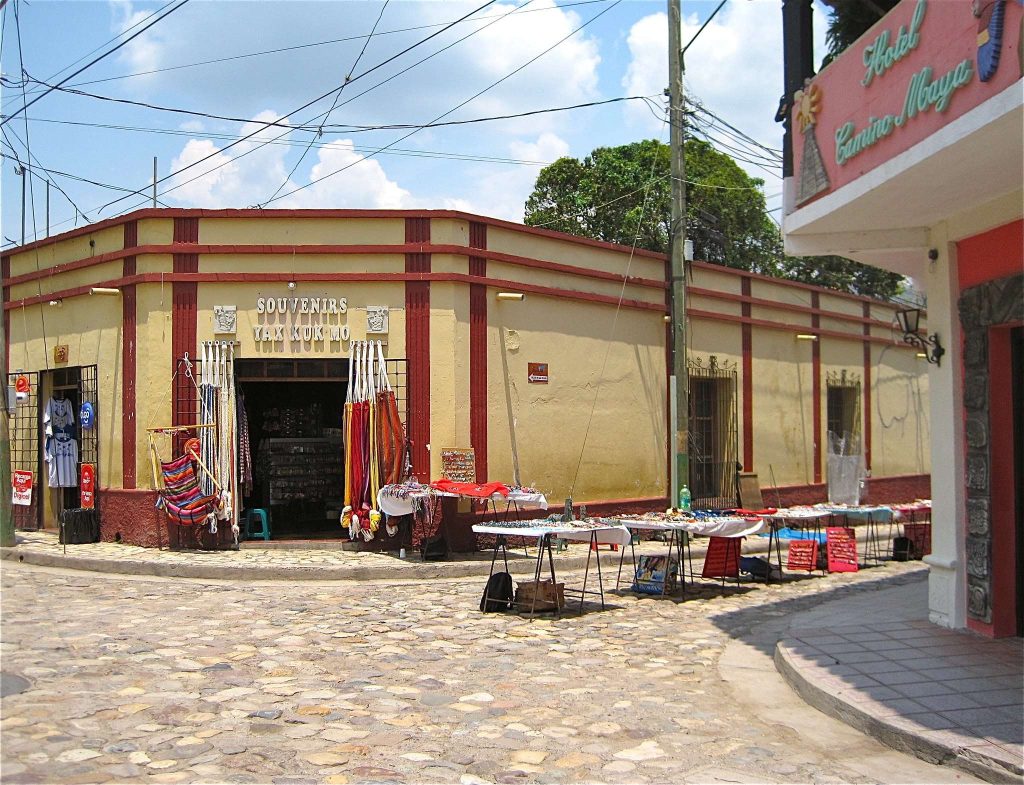
Health and Medical Issues
Honduras faces numerous health and medical challenges that impact the overall well-being and quality of life of its population, so, those same issues can pose an additional safety risk to you while traveling.
When traveling in Honduras, you might encounter various health concerns like diseases, infections, parasites, insects, food poisoning, and water quality problems.
Certain places and circumstances are more susceptible to these problems and ways to avoid them, like:
- In tropical and subtropical regions, particularly in lowlands and coastal areas, diseases and infections spread by mosquitoes and other insects are prevalent and severe.
- In rural and remote areas, particularly in regions with limited access to clean water and sanitation, diseases and infections caused by parasites and bacteria like diarrhea are more common too.
- Food and water quality might also be affected by spoilage and contamination.
Essential Travel Resources
❗Don’t forget travel insurance
This company is the one I trust, it’s one of the most essential things for any trip. It has your back in case you get sick abroad, or have an accident.
🎒Pack smarter, not bulky
Check out this vacation packing list, including all the essentials you need to pack when traveling, from travel clothing to backpacks and more.
🏡Where to Stay – Here are Suggestions
This is my favorite place to look for accommodations, it offers different types, a ton of locations, and good price options.
🗺️Get Around Hassle-Free
This one is the perfect option to look for different transportation options between cities, from flights, buses, and taxis to minivans and more.
🛫Find Cheap Flights
Whenever I need to fly, I head to this website for low-cost flights.
Safety by Popular Place to Visit
Honduras has 18 departments, each of which is divided into municipalities. Every area has its unique features, points of interest, and safety concerns.
Here’s a quick safety rundown of the places that are most visited by tourists with more in-depth details and suggestions.
San Pedro Sula
San Pedro Sula is the second-largest city and the economic hub of Honduras, but it also has a reputation for being one of the most violent cities in the world. It is known for its gang violence, drug trade, and extortion activities, leading to regular incidents.
It’s also a common stop for migrants and refugees on their way to the United States, contributing to the social and humanitarian challenges in the city.
But it has to offer a couple of tourist spots like the Anthropology and History Museum, the Central Park, and the Cathedral. However, many visitors see it as a starting point for the Bay Islands or other places.
If you find yourself in San Pedro Sula, here are some safety tips to keep in mind:
- Avoid walking alone or in unfamiliar areas, especially in the downtown, the market, or the bus terminal. If you need to walk, stay on well-lit and busy streets, and be aware of your surroundings.
- Choose a reputable and secure hotel or accommodation, preferably in a safe neighborhood, like Colonia Trejo, Colonia Figueroa, or Colonia Jardines del Valle
- Avoid traveling at night, especially on public transportation or taxis. If you need to take a taxi, use a reputable company or app, or ask your hotel or host to arrange one for you.
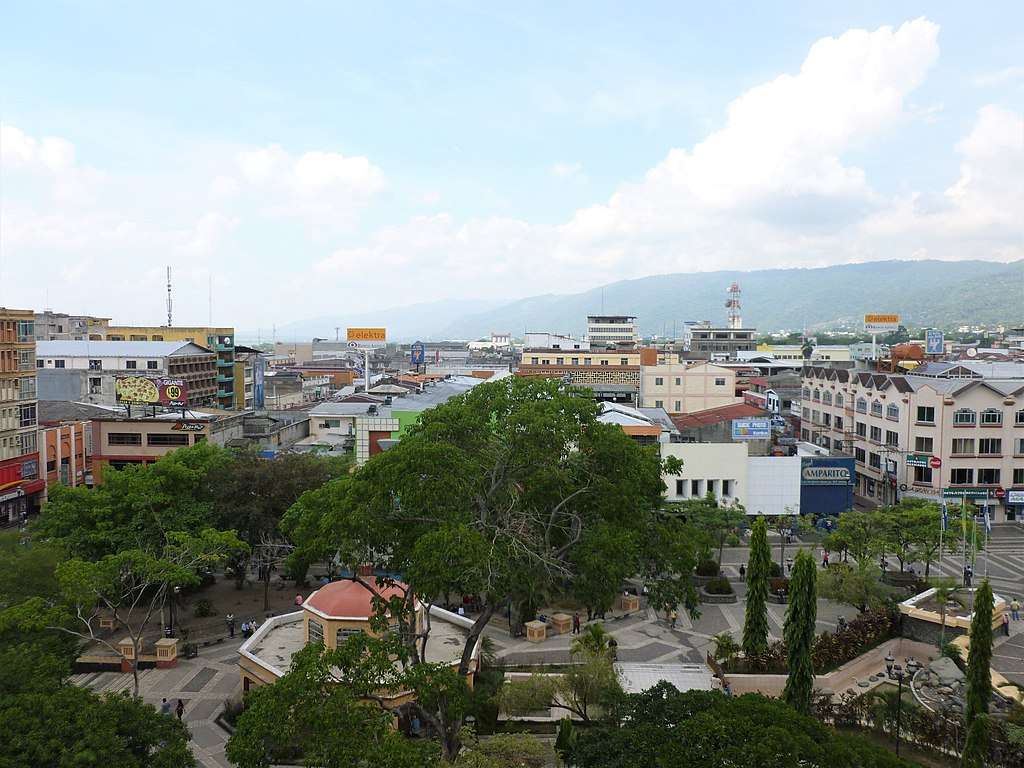
La Ceiba
La Ceiba is the third-largest city and the main port of Honduras, known as the “entertainment capital” of the country for hosting the famous Carnival of La Ceiba, the largest and most colorful festival in Central America.
It is also a great starting point to explore the Bay Islands, Pico Bonito National Park, and the Cangrejal River. You’ll have the chance to experience various outdoor activities.
La Ceiba is generally considered to be safer and more peaceful compared to San Pedro Sula, although it does have significant crime and security issues, particularly in the downtown area, the beach, and the outskirts.
If you’re planning a trip to La Ceiba, here are some safety tips to keep in mind:
- Follow the same tips as for San Pedro Sula they apply to La Ceiba as well, as the city has similar risks and challenges.
- The beach in La Ceiba isn’t very clean or attractive and might have trash, sewage, or debris. It can get pretty busy with both locals and tourists, especially during Carnival or holidays, and unfortunately, it can be a target for crimes
- It’s a good idea to watch out when you’re exploring Pico Bonito National Park, the Cangrejal River, or other natural spots because there could be some risks like wildlife, insects, plants, or weather.
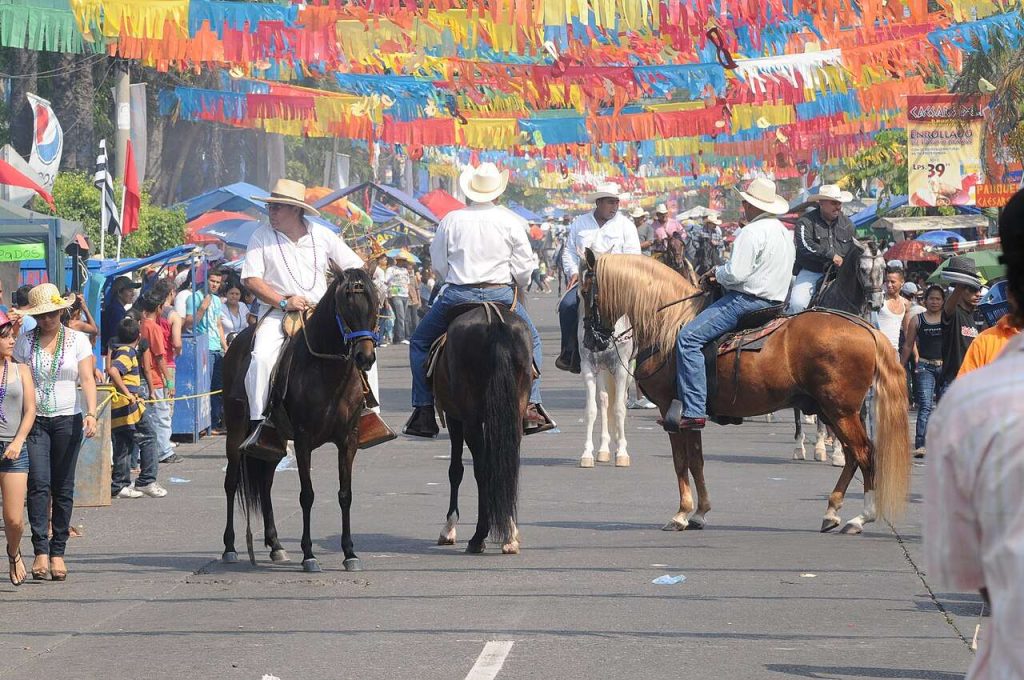
Tegucigalpa
Tegucigalpa is the biggest city in Honduras, with the highest population. It also serves as the capital and the government’s headquarters. It offers a variety of tourist attractions, including the National Museum, the Basilica of Suyapa, the Metropolitan Cathedral, and the Central Park.
On the flip side, Tegucigalpa is known for being one of the more challenging cities in the country, facing issues like crime, violence, pollution, and congestion.
If you’re planning a trip to Tegucigalpa, here are some safety tips to keep in mind:
- Follow the same tips as for San Pedro Sula and La Ceiba, they apply to Tegucigalpa as well, as the city has similar risks.
- Historical and cultural spots might be busy, not well-kept, or attract some unwanted attention. For those interested in exploring historical and cultural sites, consider visiting well-known and secure locations like the National Museum, the Basilica of Suyapa, or the Metropolitan Cathedral.
- Be careful when visiting the nightlife venues, as they may be unsafe, illegal, or unsanitary. If you want to visit the nightlife venues, choose the ones that are more reputable and secure, like the ones in the Colonia Palmira, Colonia Lomas del Guijarro, or Colonia Florencia.
Comayagua
Comayagua is a quaint town located in the Central Region, known for being the former capital and the oldest city in Honduras. Comayagua is home to numerous colonial buildings, churches, and monuments, including the Cathedral of the Immaculate Conception, the Comayagua Clock, and the San Francisco Church.
It is known for its peaceful and pleasant atmosphere, featuring numerous parks, gardens, and plazas like Central Park, La Merced Park, and Santa Lucia Plaza.
The town is also known for being a safe and peaceful destination in Honduras, with a low crime rate and welcoming locals.
When you’re in Comayagua, here are some safety tips to keep in mind:
- Follow the same tips stated before. They apply to Comayagua as well, although to a lesser extent.
- Remember to show respect and kindness to the locals, as they can be very friendly and welcoming.
- When interacting with locals, it’s important to be respectful, and courteous, and follow their customs and etiquette. This can enhance your experience and prevent any misunderstandings or conflicts.
- Be generous and charitable to the needy, as they may be poor, hungry, or homeless.
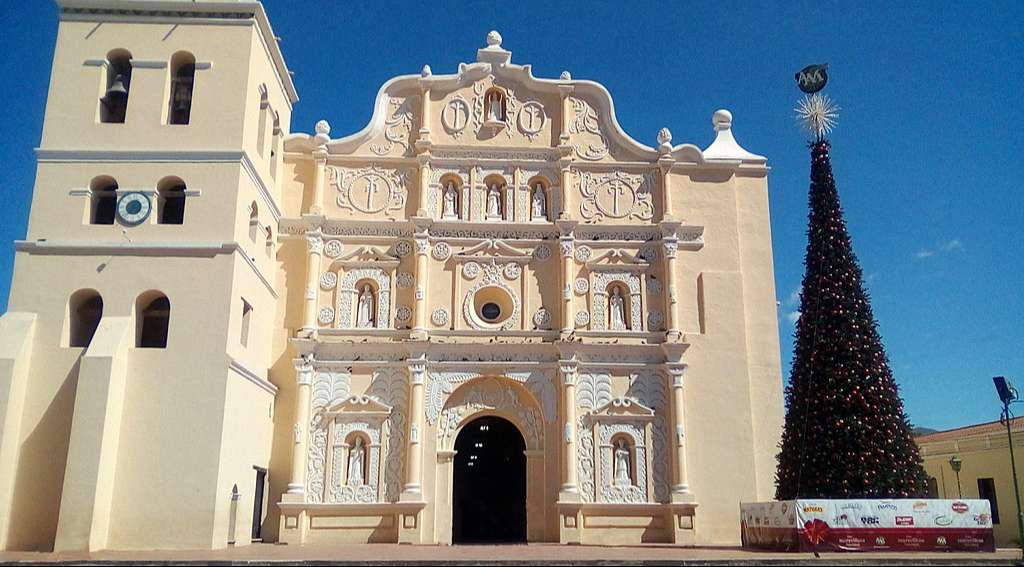
Copán
Copán is a charming little town located in the Western Region, home to the most significant and breathtaking Maya ruins in Honduras. Copán boasts a captivating history, culture, and art, serving as the capital of a Maya kingdom that thrived from the 5th to the 9th century AD.
Copán is known for being another of the safe and peaceful destinations in Honduras, with a low crime rate and welcoming locals.
Yet, Copán still faces risks and challenges. When you’re in Copán, here are some safety tips to keep in mind:
- Remember to apply the same advice from San Pedro Sula, La Ceiba, Tegucigalpa, and Comayagua. Copán faces similar risks and challenges as the town but to a lesser degree.
- The people in Copán are usually friendly and welcoming, ready to provide you with help, tips, or a warm welcome. However, it’s important to show respect and courtesy and to adhere to their customs and etiquette.
- In Copán, there are fewer needy individuals compared to other areas, but they still face challenges and might approach you for help with money, food, or clothing. If you’re interested in supporting those in need, consider being generous and giving what you can to make a positive impact.
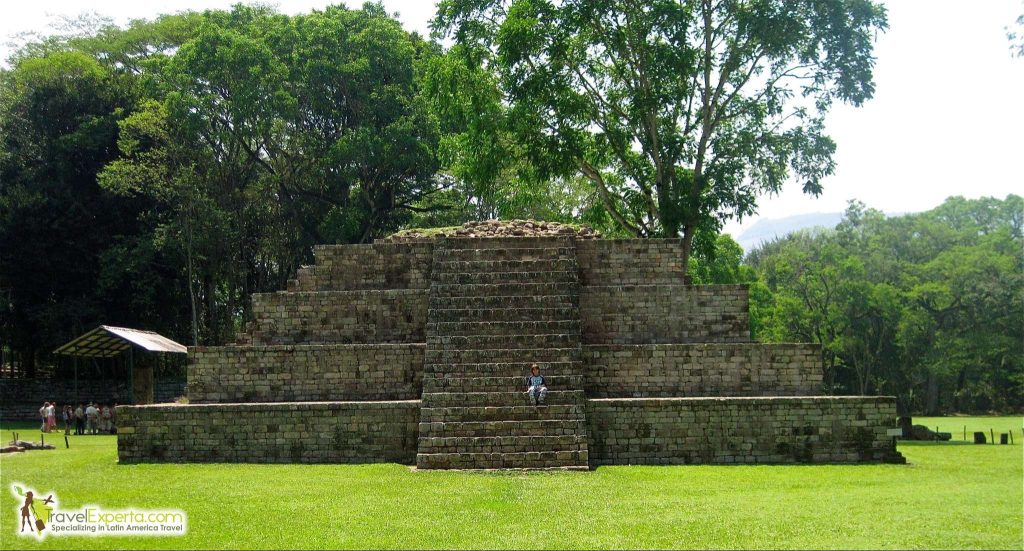
Bay Islands
Located off the northern coast of Honduras in the Caribbean Sea, the Bay Islands consist of a group of islands and cays. They are famous for their breathtaking natural beauty, abundant marine life, and varied culture.
The Bay Islands are a popular destination for many tourists annually, drawn by the sunny weather, beautiful beaches, and vibrant coral reefs, and are considered one of the safest places for tourists in Honduras.
While the Bay Islands, Roatan and Utila, are a lot safer than the rest of the country, you should practice common sense and be aware. Here are some tips for you to follow:
- Be aware of your surroundings and trust your instincts. If something or someone seems suspicious, shady, or too good to be true, it probably is.
- Avoid walking alone or in dark or isolated areas, especially at night.
- Choose a reputable and certified operator or guide for your water activities, especially if you are doing scuba diving. They will provide you with the proper equipment, training, and supervision.
- Wear appropriate and protective clothing and gear for your water activities as well as for the sun and heat.
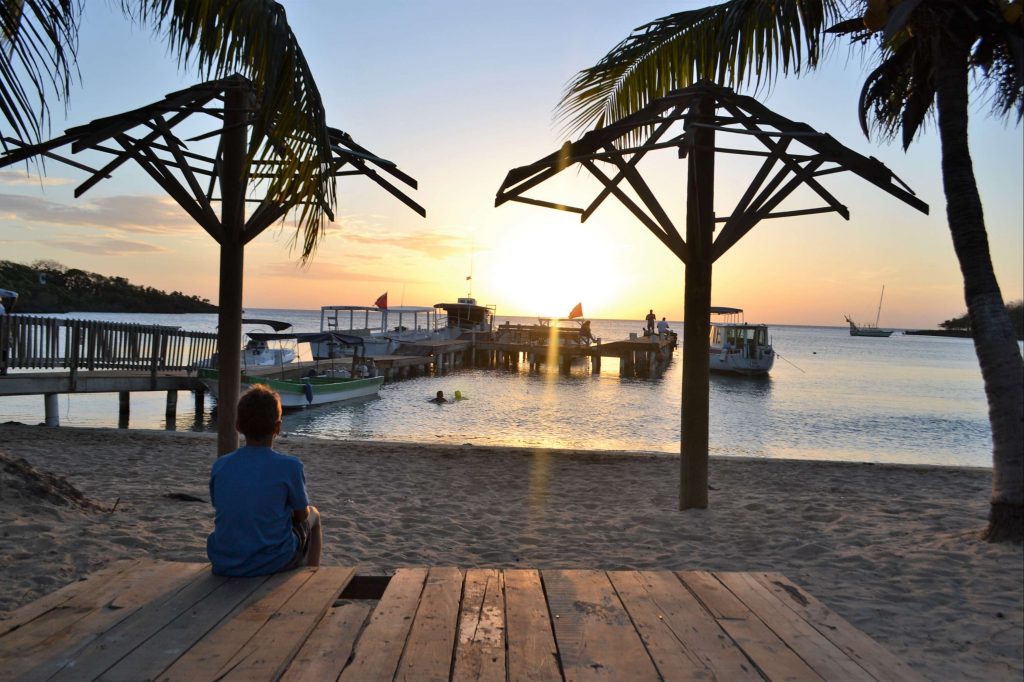
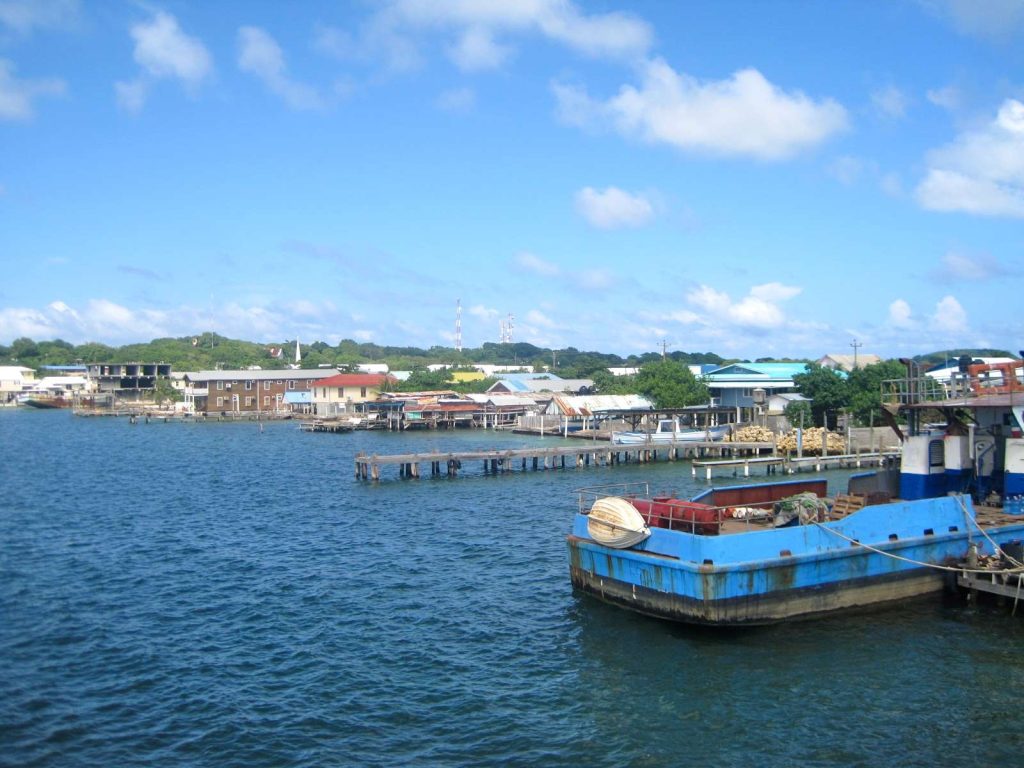
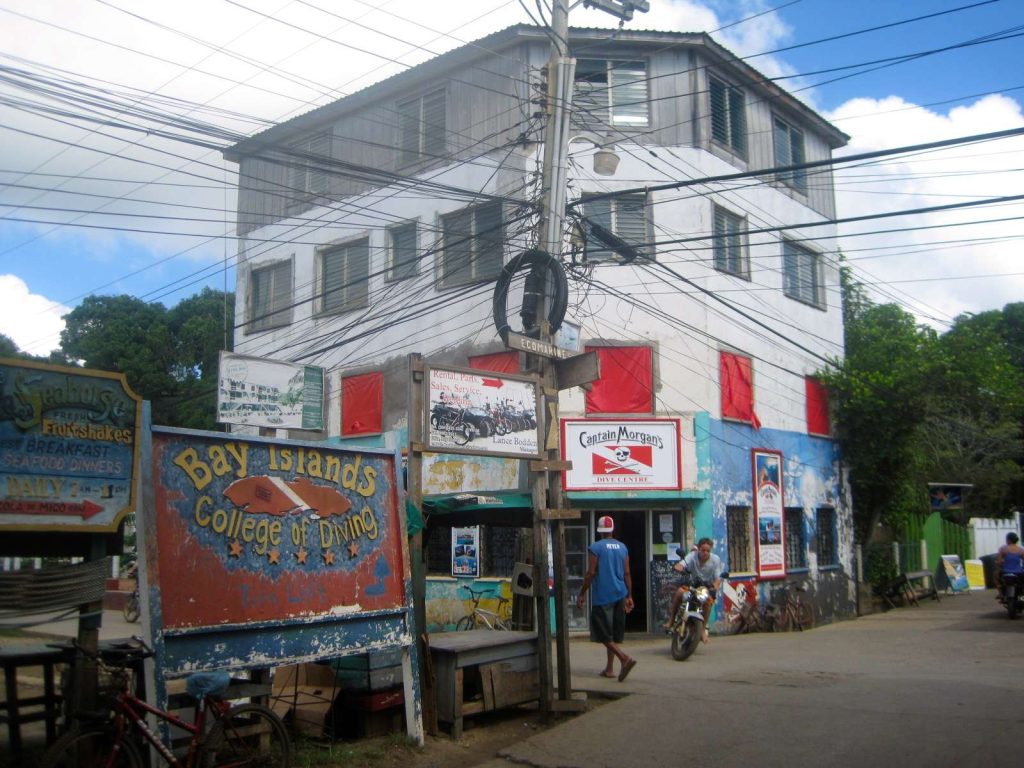
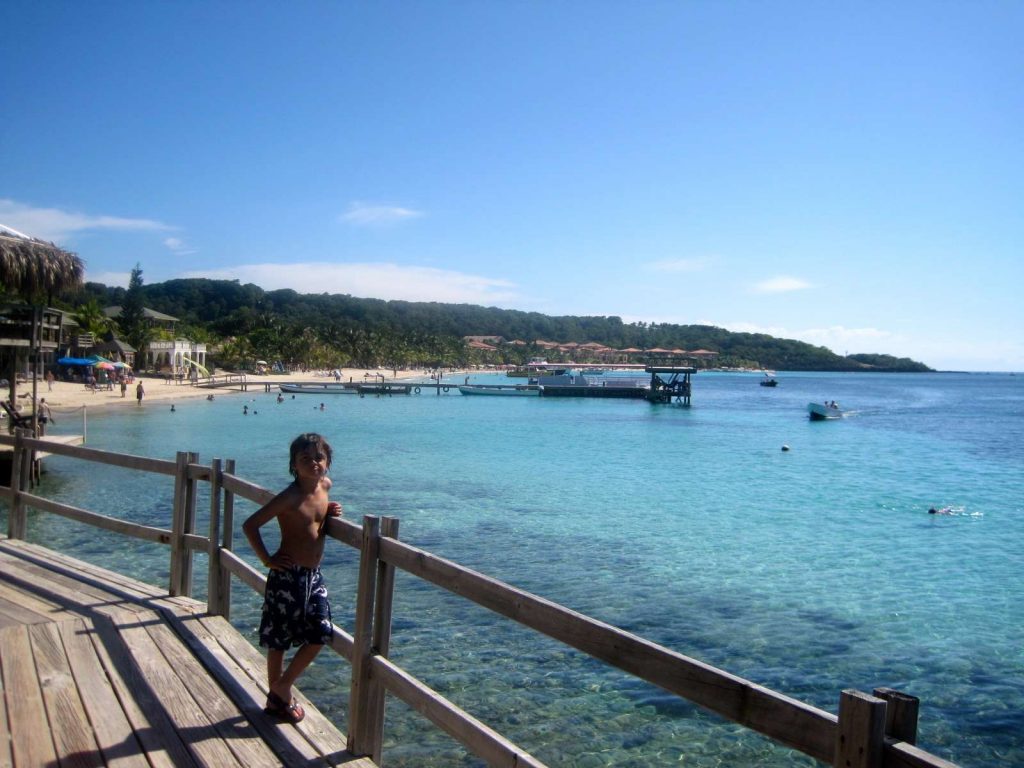
Safety Tips and Recommendations for Travelers in Honduras
Before You Go
Before heading to Honduras, make sure to take care of a few things to guarantee a safe and fun trip.
Here are a few ideas for you:
Research: Explore all aspects of Honduras: its culture, history, geography, attractions, challenges, and risks. Make sure to use trustworthy and current sources of information like official websites, and steer clear of biased or outdated sources like sensationalist media, rumors, and stereotypes.
Plan: Make sure to carefully select your destinations, routes, transportation, accommodation, activities, and itinerary. Steer clear of places, times, and situations that are considered risky or troublesome.
Book: It’s a good idea to secure your flights, accommodations, activities, and transportation, with reputable providers. It’s important to verify your bookings and arrangements both before you depart and upon your arrival.
Remember to save copies of your bookings and confirmations, and keep the contact details and addresses of your providers handy.
Pack: Make sure to pack your luggage and documents efficiently, considering the weather, local culture, customs, and regulations in Honduras.
Just pack the things you need and can easily and safely carry. Make sure to bring a first aid kit, flashlight, whistle, and phone charger. Also, remember to mark your luggage and documents, and keep copies and backups of all your important information.
Insure: Make sure you have the right insurance coverage for yourself and your belongings, considering the possible risks and expenses of traveling in Honduras. Make sure to have your policy number and emergency contact information easily accessible.
Don’t forget to get travel insurance for your trip—get coverage for:
• Medical emergencies
• Stolen or lost goods
• Canceled flights and more
I’ve been using VISITORS COVERAGE for years and highly recommend it!
Some resources and links to find reliable and updated information on Honduras are:
- The official website of the Tourism Board of Honduras: https://www.honduras.travel/en
- The official website of the embassy or consulate of your country in Honduras: https://www.embassypages.com/honduras
- The travel advisories and alerts issued by your government or other authorities: United States, Canada, United Kingdom.
During Your Stay
Once you arrive in Honduras, there are some things that you should do and avoid during your stay, to ensure a safe and enjoyable trip.
Here are some suggestions:
Respect: Please be mindful of the laws, rules, customs, and culture of Honduras and its people. Just follow the instructions and recommendations given by the authorities and the locals. Remember to always be kind, respectful, and approachable when engaging with others.
Communicate: Connect well with the individuals and service providers in Honduras. Explore some common words and phrases in Spanish, the official language of Honduras, or try out translation apps.
Consider getting a local SIM card or a roaming plan for your phone, make sure to have a communication plan and a contact list ready for emergencies or when you need help.
Stay in touch often with your family and friends back home, keeping them informed about your location and activities.
Behave: Make sure to act responsibly and sensibly, and stay mindful of your surroundings and your current situation. Stay alert and watch out for any suspicious or dangerous behavior or individuals.
Avoid showing off your money, jewelry, gadgets, or documents.
Some contact details and links to find help and support in Honduras are:
- Emergency services of Honduras: 911
- The official website of the health system of Honduras: https://www.salud.gob.hn/
- The official website of the police of Honduras: https://www.policianacional.gob.hn/
- The official website of the Fire Department of Honduras: https://www.bomberos.hn/
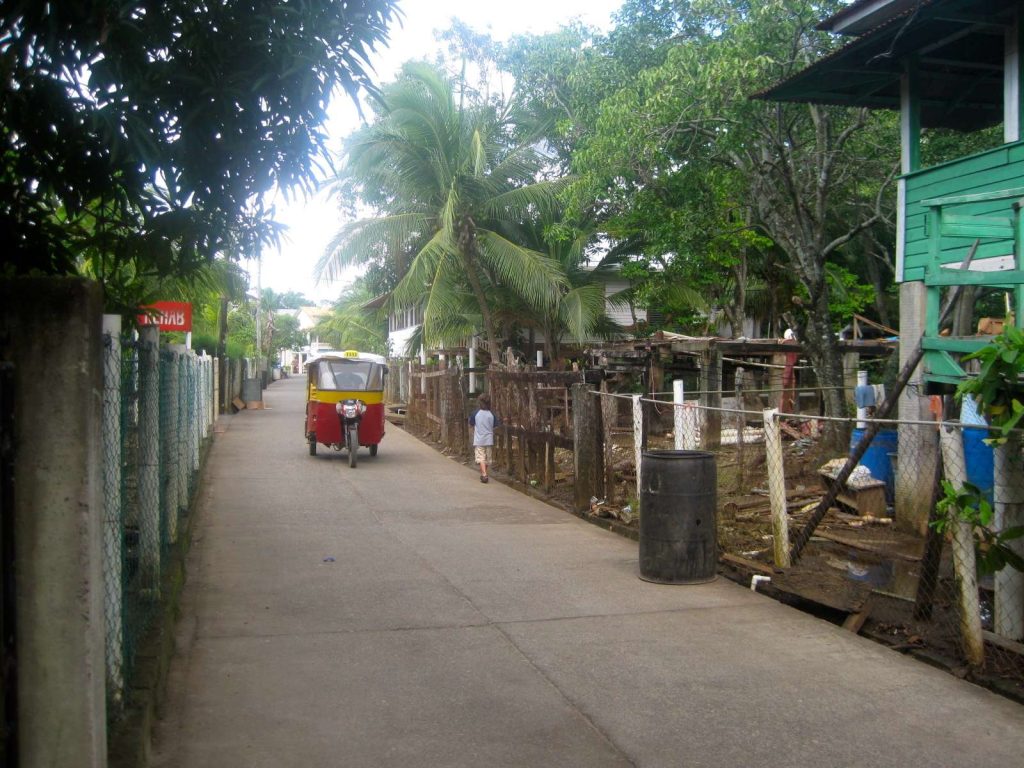
FAQ
Is Honduras safe for American tourists?
Yes, but it’s not straightforward to answer, considering that Honduras has both safe and unsafe areas. The level of risk varies depending on factors like your destination, timing, and transportation.
As per the U.S. Department of State, Honduras is under a Level 3 travel advisory, advising travelers to “Reconsider travel”.
Still, it’s worth noting that there are plenty of safe and tourist-friendly spots in Honduras, like Utila, Roatan, Copan, and Tela. These locations boast lower crime rates, improved infrastructure, and a wider range of tourist services compared to other areas in the country.
They also have a solid local police and security guard presence to assist you in case of any issues. Plenty of travelers have checked out these spots and had a great time with no big issues.
Is Roatan Honduras safe for cruise passengers?
Yes, Roatan is a safe place to visit as long as you follow some common-sense tips and precautions. Roatan is generally a peaceful and friendly place, with a low crime rate and a stable political situation.
However, like any tourist destination, it has some risks and challenges that you should be aware of, like its tropical climate, which means you may encounter mosquitoes, sunburn, or dehydration.
The public transportation system is quite limited, including buses, taxis, and water taxis. Avoid using unlicensed or unofficial taxis because they might overcharge you or take you to unsafe areas, and make sure to agree on your way back beforehand.
Is Honduras safe for solo travelers, especially women?
Yes, just stick to the main touristic areas and keep in mind that traveling solo in Honduras, especially for women, can pose various risks and challenges like harassment, discrimination, or violence.
Nevertheless, solo travelers, including women, can still visit Honduras and have a fulfilling and pleasant experience.
Do I need a visa to travel to Honduras?
It varies based on your nationality and the reason and length of your journey. Most people from countries in the Americas and Europe can visit Honduras for tourism or business for up to 90 days without needing a visa.
It’s a good idea to verify the visa requirements and entry conditions for your particular situation before heading to Honduras.
Disclosure: This blog post may contain affiliate links, which means that I may receive a commission for any purchases made through the links. Your trust is important to us, and we ensure that all products or services we recommend meet or exceed our editorial standards.
Last Updated on February 25, 2024
The post Is Honduras Safe to Travel? Ultimate Guide With Insider Tips appeared first on Travel Experta - Travel, Lifestyle, Freedom.
------------------------------------------
By: Angel
Title: Is Honduras Safe to Travel? Ultimate Guide With Insider Tips
Sourced From: travelexperta.com/is-honduras-safe/
Published Date: Sun, 25 Feb 2024 20:04:21 +0000






